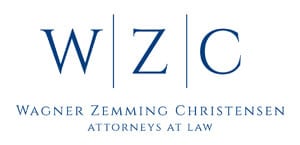Employer Law Newsletter
Employer Law Newsletter
Qui Tam Claims
The federal False Claims Act allows private individuals to bring claims ("qui tam" claims) on behalf of the government against companies and others who have government contracts or receive or use federal funding and who have defrauded the federal government in some way.
In order for an individual to bring a qui tam claim, he or she generally must have independent and direct knowledge of the misconduct. The action cannot be based on information the individual gathered from public sources, such as news reports or court filings.
Those who bring qui tam claims are referred to as "relators." Employees who allege misconduct on the part of their employers against the federal government are the most common group of relators. Former employees also can be relators, as well as business competitors, subcontractors and others in a position to gain first-hand knowledge of a party's actions to defraud the federal government.
Types of misconduct that may qualify for qui tam actions include:
- Knowingly overcharging or mischarging for a product or service
- Charging for products or services that were never provided
- Selling products or services but never delivering them
- Substituting products or services rather than deliver those promised
- Submitting false reports about the quality or costs of a product
- Failing to properly test a product or falsely certifying a product has been tested
Once a private party files a qui tam claim, the claim is sealed - meaning it is not open to the public - for at least 60 days while the federal government investigates the claim. At the end of the investigation, the government will decide whether or not it wants to join the claim. Even if the government does not join the claim, the relator can still pursue the case. The government also will have the option of joining the claim at a later time.
Under the False Claims Act, employers may not retaliate against employees who file qui tam actions against them. This includes not only a prohibition against firing the employee, but also against taking any negative employment action against the employee.
Those who are found guilty of defrauding the federal government may have to pay penalties, treble damages, court costs and attorney fees. The relator is entitled to a percentage of any recovery that is ordered by the court. This generally amounts to 15-30% of the total damages award. If the relator was involved in the misconduct, the court may decide to reduce the amount the relator ultimately receives. Moreover, if the relator is convicted of a crime for his or her role in the misconduct, the court will deny any recovery to the relator and the relator most likely will be dismissed from the case.
To learn more about qui tam actions, contact an experienced employment law attorney.
How Employment Law Attorneys Can Help Employers
To read and print out a copy of the checklist, please follow link below.
How Employment Law Attorneys Can Help Employers
You can download a free copy of Adobe Acrobat Reader here
Copyright © 2008 FindLaw, a Thomson Reuters business
DISCLAIMER: This site and any information contained herein are intended for informational purposes only and should not be construed as legal advice. Seek competent counsel for advice on any legal matter.


